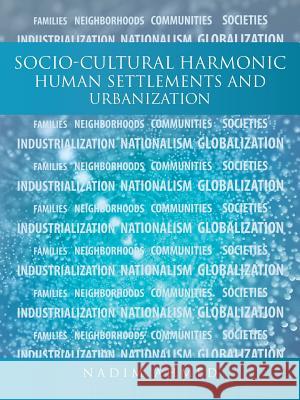Socio-Cultural Harmonic Human Settlements and Urbanization » książka
Socio-Cultural Harmonic Human Settlements and Urbanization
ISBN-13: 9781504958349 / Angielski / Miękka / 2015 / 100 str.
Societies were formed in order to give man an opportunity to maximize and enjoy the fruits of individual successes and fulfillment of individual self-goals, where man started to live in families, neighborhoods, and communities, which then transformed into social setups. Scientific advancements and invention of currencies made this possible for man to produce and exchange goods and other commodities in huge quantities to fulfill the human desires and accomplish goals. This gave rise to large numbers of production and commercial centers to produce and trade commodities and other products. Nationalism and globalization added new dimensions to human settlements and related issues and problems At this point in history, human dwellings became vast, and societies grew into huge urban areas, losing their meaning of being societies and their very essential and basic components got mixed up in disorderly manners, thus causing tremendous amount of energies wasted, as well as the fabric of human-to-human and human-to-nature relations torn apart, causing human beings denied happiness and various types of psychological and mental pains and stresses Socio-Cultural Harmonic Human Settlements and Urban Planning can solve this issue, because this type of urban planning is based on social and cultural aspects and elements of human living. As urban domain is the action ground of societies, therefore, urban areas must be created based on the basic principles on which societies have evolved. All a man does in a society is the social activity; each and every social activity has a specific type or related required social energy level; hence, all social activities must be classified based on the above mentioned principle. These classified social activities must be assigned to specific social activity hubs. These hubs must be placed spatially in a harmonic fashion. This is the only way human settlements may have the much lost happiness returned back and also optimal social energy consumption without any negative social impacts.
Societies were formed in order to give man an opportunity to maximize and enjoy the fruits of individual successes and fulfillment of individual self-goals, where man started to live in families, neighborhoods, and communities, which then transformed into social setups. Scientific advancements and invention of currencies made this possible for man to produce and exchange goods and other commodities in huge quantities to fulfill the human desires and accomplish goals. This gave rise to large numbers of production and commercial centers to produce and trade commodities and other products. Nationalism and globalization added new dimensions to human settlements and related issues and problems At this point in history, human dwellings became vast, and societies grew into huge urban areas, losing their meaning of being societies and their very essential and basic components got mixed up in disorderly manners, thus causing tremendous amount of energies wasted, as well as the fabric of human-to-human and human-to-nature relations torn apart, causing human beings denied happiness and various types of psychological and mental pains and stresses Socio-Cultural Harmonic Human Settlements and Urban Planning can solve this issue, because this type of urban planning is based on social and cultural aspects and elements of human living. As urban domain is the action ground of societies, therefore, urban areas must be created based on the basic principles on which societies have evolved. All a man does in a society is the social activity; each and every social activity has a specific type or related required social energy level; hence, all social activities must be classified based on the above mentioned principle. These classified social activities must be assigned to specific social activity hubs. These hubs must be placed spatially in a harmonic fashion. This is the only way human settlements may have the much lost happiness returned back and also optimal social energy consumption without any negative social impacts.











